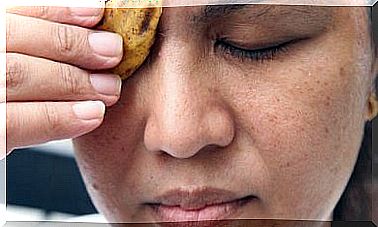Signs And Symptoms Of Appendicitis
The appendix is a sac-shaped organ that is connected to the large intestine. You need to know how to recognize the symptoms of appendicitis to be on the safe side if you have any of them.
It is an organ that does not perform any vital function, so it is possible to lead a healthy and normal life without it.
Its function is unknown, but it is believed to be in charge of containing the tissue responsible for helping the body with the process of immunity against infections.
Appendicitis is inflammation of the appendix. If left untreated, the appendix can explode and expose the person to a life-threatening situation.
It is important to seek immediate medical attention if you experience any signs of this disease.
This inflammation can cause a variety of symptoms, and the appendix can rupture within 48 to 72 hours of its appearance.
Abdominal pain
The first symptoms of inflammation usually involve the gradual onset of cramps, mild diarrhea, or pain throughout the abdomen.
As your appendix becomes larger and more inflamed, it irritates the lining of the abdominal wall.

This irritation can cause a sharp pain located in the lower right part of the abdomen. This pain tends to be more constant and severe than the pain at the beginning of symptoms.
In some people it can happen that the pain is behind a colon. In this case, appendicitis is likely to cause pain in the lower back or pelvis.
mild fever
Appendicitis usually causes fevers between 37.2°C and 38°C. The patient may also experience chills.
If the appendix bursts, the infection can cause the fever to rise and the temperature to rise above 38.3°C, and the heart rate will rise.
digestive malaise
Appendicitis can cause symptoms such as nausea and vomiting. It’s possible that you lose your appetite and feel like you can’t eat. You may experience severe constipation or diarrhea.
If you are having problems, including getting gas, this can be a clear indication of a partial or complete obstruction of your bowel. And, of course, it could be related to an underlying inflammation.
Symptoms of appendicitis in children
Children are not always able to describe how they feel. It is also possible that they have difficulty locating the pain in time and simply say that their abdomen is hurting all over.
This can make it difficult to determine whether appendicitis is causing the pain.
It is possible that it is easily mistaken for something like a stomach virus or a urinary tract infection. However, it is always better to be cautious when there are symptoms of appendicitis.
A ruptured appendix can be very dangerous for anyone, but the risk of death is much higher in young children.
Children under two years of age often show these symptoms when they have appendicitis:
- vomiting
- bloating or bloating
- Sensitivity in the abdomen
Older children and teenagers are more likely to experience the following symptoms:
- Nausea
- vomiting
- Pain in the right inner part of the abdomen
Symptoms of Appendicitis During Pregnancy
Many symptoms of appendicitis may be mimicking some of the annoyances of pregnancy, including stomach cramps and nausea.
It may be that the woman does not always present the classic symptoms of appendicitis, especially at the end of pregnancy.
The appendix is taller during pregnancy due to the growth of the uterus, so it is possible to feel pain in the upper abdomen instead of the lower right part.
Pregnant women suffering from appendicitis may be more exposed to experiencing symptoms such as:
- Acidity
- Gases
- Alternating episodes between constipation and diarrhea
What are the risk factors? Can I prevent appendicitis?
Appendicitis can manifest at any time in life, but it usually occurs between 10 and 30 years of age, and is common in both men and women.
It cannot be prevented, but some precautions can be taken to reduce the risks.
It is possible to reduce the likelihood of having appendicitis if your diet is high in fiber. We can do this by increasing consumption of fresh fruits and vegetables.
Some of the high fiber foods that can help are:
- Raspberry
- Apple
- Pear
- artichokes
- green peas
- broccoli, lentils
- Black bean
- Barley
- Oatmeal flour
Increasing fiber consumption prevents constipation and future accumulation of fecal matter, which is often the common cause of appendicitis.
Remember that you need to see a trusted doctor right away if you or any of your relatives experience the symptoms of appendicitis.
There are no home remedies that can help in this case, and it’s possible that many of them will only complicate the situation further.
The doctor is the only one who can determine if it is really appendicitis.
He will likely order a blood and urine test for infection, as well as an abdominal ultrasound or CT scan to determine the level of inflammation in your appendix.









